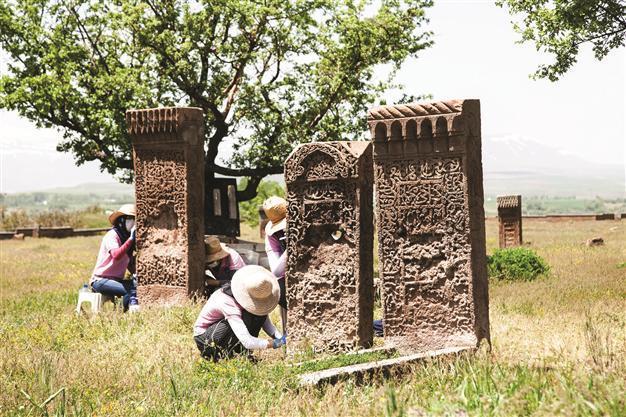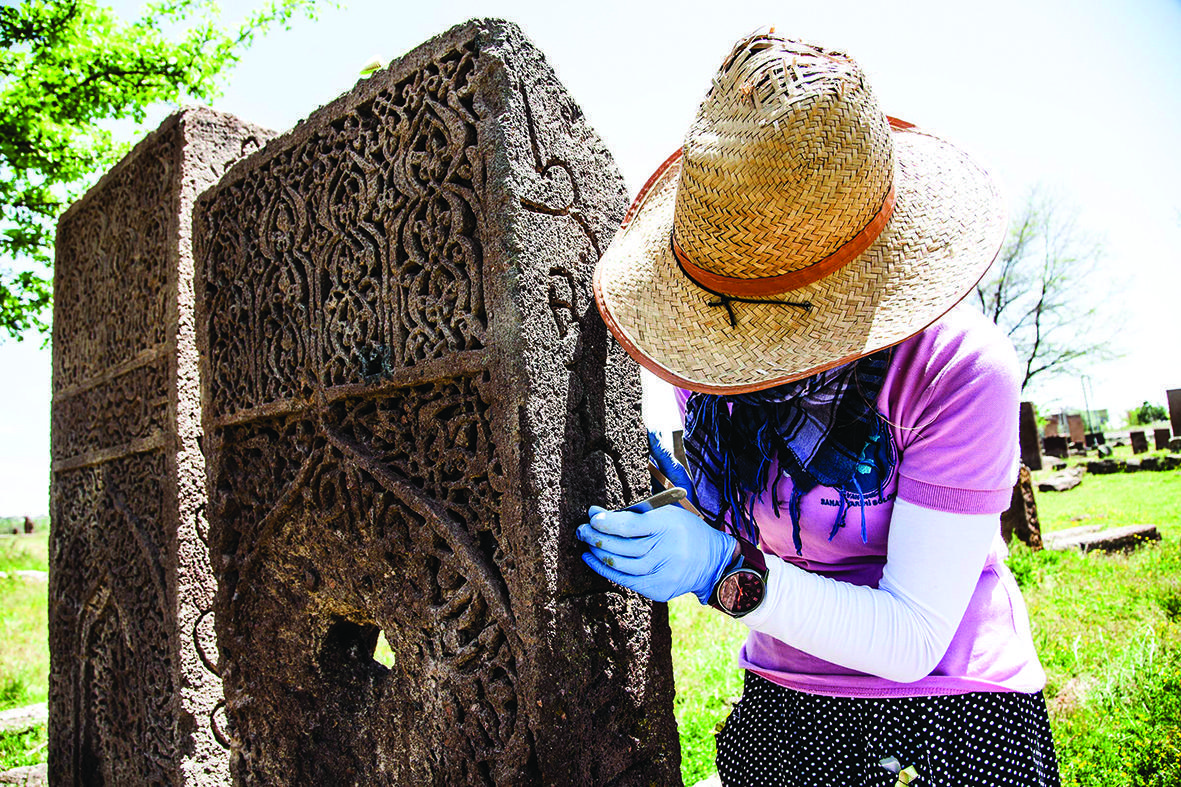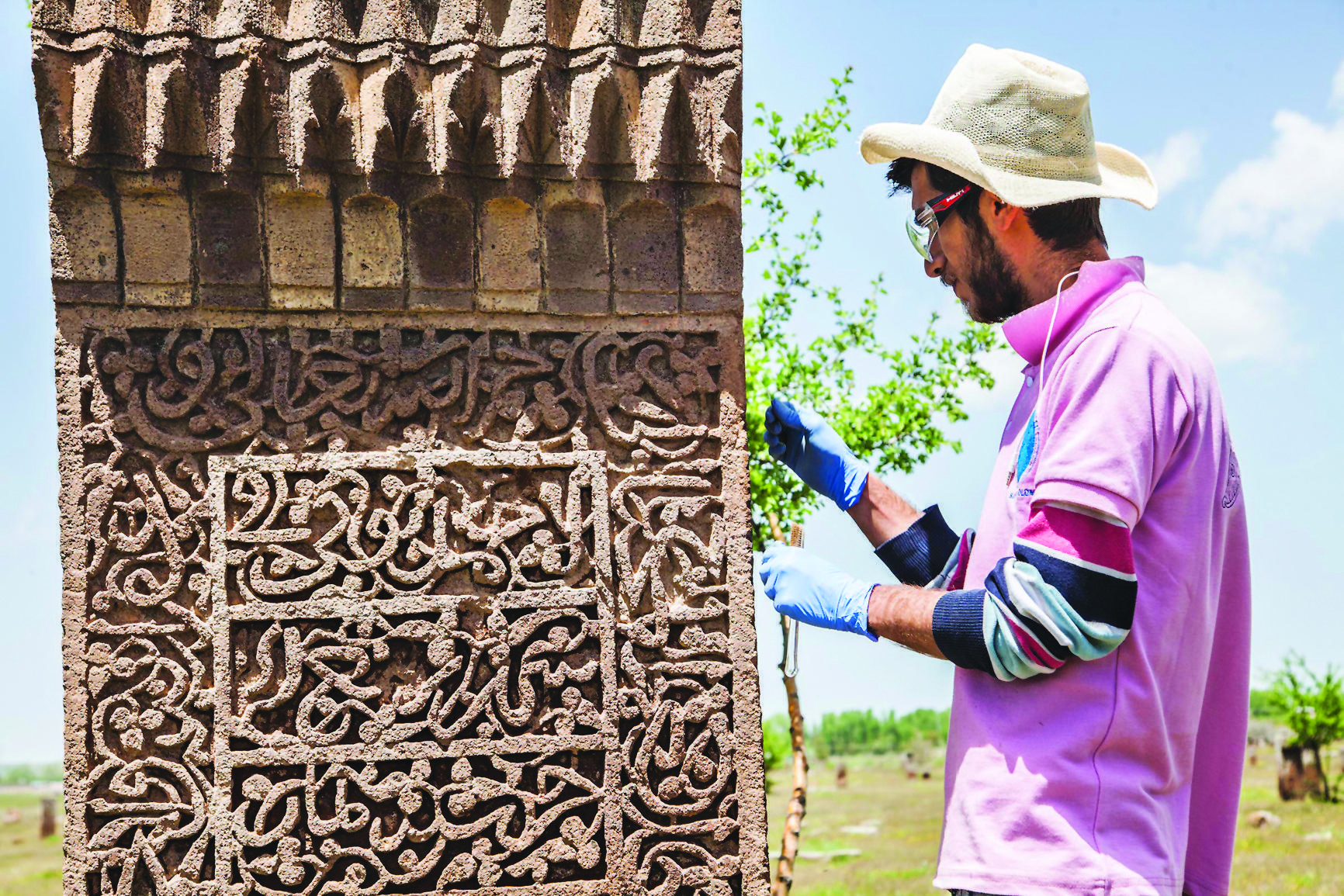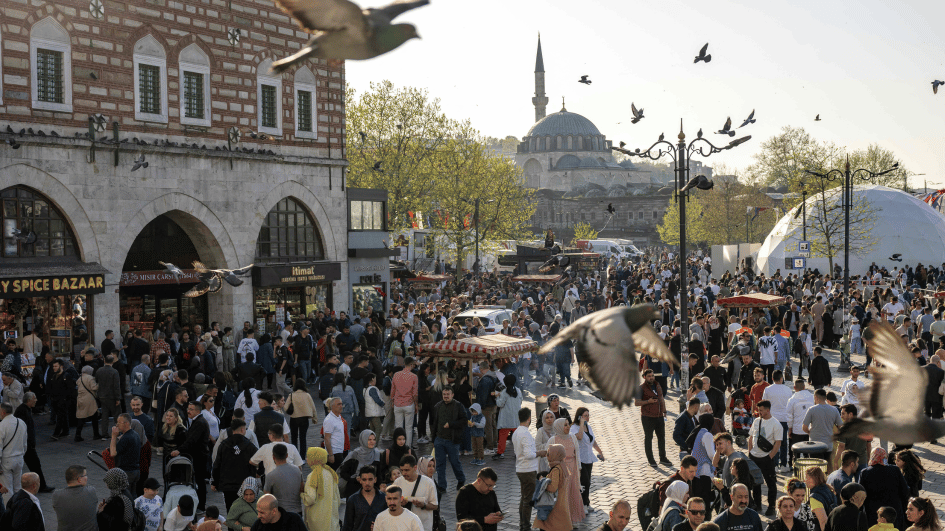Old Ahlat city excavations begin
BİTLİS

DHA Photo
Excavation work has begun in the Ahlat Seljuk graveyard, considered the “Orkhon Inscriptions of Anatolia,” in the eastern province of Bitlis. It is known as the world’s largest Turkish-Islam graveyard.The site has 8,203 gravestones, the tallest of which are some 4.5 meters, and many are artifacts decorated with inscriptions and motifs.
 The Old Ahlat City excavations this year are headed by Yüzüncü Yıl University (YYU) Professor Recai Karahan.
The Old Ahlat City excavations this year are headed by Yüzüncü Yıl University (YYU) Professor Recai Karahan. Karahan said fixing the broken stones and cleaning away the lichens in the graveyard were their priority.
He said 25 people, including 10 workers, 10 restorers and a five-person excavation team, had started working. “Some seven-eight stones have been cleaned of lichen so far,” he said.
Karahan said the excavation season would open in one month, adding, “Then work will start in the entire Seljuk Graveyard. Right now lichens are being cleaned and also environmental arrangements and conservation works continue. When the real work starts, the number of our team members may become 50. We use only mechanical tools to clean the gravestones, such as lancets and brushes. We wet the stones and cover them with plastic wrap. In this way, the lichens began to dissolve. We don’t use any other materials.”
Karahan said the stones could not be read because of the lichens, which are a fast-growing and spreading plant. “It damages the stone quickly when it [the growing process] is not intervened. We try to prevent it,” he added.
Karahan said the graveyard was frequently visited by visitors. “This is why cleaning is very important for us. Geophysics and geo-radar work will also be carried out before the excavations start,” he said.
On UNESCO Tentative List
The gravestones in Ahlat are on the UNESCO Tentative List. They have an important place in the Islamic world for their variation within Anatolian tomb architecture in both dimension and design.
They are not only important sources of information on the technical and decorative repertoire of the period, but also act as historical sources for important craftsmen, whose names appear in inscriptions.

















